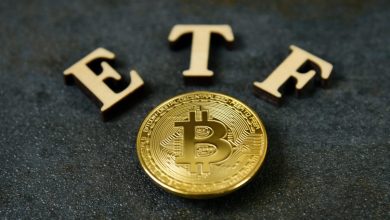Under 18 Crypto Trading: What’s Allowed and How Teens Can Learn Safely


KEY TAKEAWAYS
- UK regulations require crypto traders to be 18 and over for direct platform participation.
- Teens can engage securely via custodial accounts, gifted crypto, and educational tools.
- Age restrictions protect minors from volatility, scams, and legal risks.
- Hands-on learning through demo accounts and community mentorship is key.
- Parental guidance and open communication enhance secure teen crypto engagement.
- Fintech and regulation will continue evolving to better serve young crypto enthusiasts.
An increasing number of teenagers are becoming interested in digital assets and want to be a part of the economy. But the rules for trading cryptocurrencies for people under 18 can be complicated and diverse depending on where you live.
To keep teens secure from financial risks and scams, there are strict age limits in the UK and many other countries. This guide explains what underage crypto fans can and can’t do legally, looks at other ways to learn about and invest in crypto, and gives teens and parents practical tips on how to securely and smartly get involved with crypto assets.
Understanding Legal Age Restrictions for Crypto Trading
Before teens and their parents let them trade in cryptocurrencies, they need to know the laws that govern access. The to open an account on regulated cryptocurrency platforms is 18 in most countries, including the UK.
This requirement comes from rules about money laundering (), financial regulations, and identity verification that platforms have to follow. To follow these rules, major platforms like Coinbase, Binance, and Kraken check people’s ages very carefully.
Minors can own crypto, but they usually can’t trade or purchase it directly on regulated platforms. Teens can’t open accounts on their own, but they can still hold or get crypto through other means, as long as they have adult supervision and follow the law. To avoid accidentally breaking the law and to stay secure when dealing with digital assets, it’s significant to know these rules.
How Teens Can Gain Crypto Exposure Without Breaking the Rules
Even if direct trading is off-limits, teens can still engage with crypto in structured, educational, and legally compliant ways. Here’s how:
Custodial Accounts
With a custodial account, or guardians can open and manage a crypto account for a child. The adult is in charge of the investments and the trading until the teen turns 18.
This setup protects teens from making rash trading decisions or market swings while still letting them learn about how the crypto market works.
Gifted Crypto Assets
can also get crypto assets as gifts. Parents or guardians usually keep these funds in wallets that young users can access. This lets them keep track of changes in value, learn about wallets, and watch blockchain transactions without having to trade on their own.
Giving someone crypto can assist them learn how to be responsible with money and how to own digital assets.
Educational Platforms and Simulators
Demo accounts and crypto simulators are great places to learn because they don’t put you at risk. Teenagers can practice trading strategies, learn the language, and view how the market works without putting their own money at risk on platforms like Coinbase Learn or trading simulators. These tools are very assistful for learning about money and building confidence.
Decentralized platforms (DEXs) and Peer-to-Peer Platforms
Some DEXs and Web3 platforms don’t strictly check ages, which means that kids could theoretically trade. But these come with a lot of risks, like , phishing, and mistakes that can’t be fixed.
If teens want to go to these places, they should be watched and guided by an adult. Putting education first makes sure they know what will happen if they trade in an unsecure way.
Risks Specific to Underage Crypto Traders
Understanding the risks associated with crypto trading is crucial for teens and guardians alike.
- Financial Loss and Volatility: Cryptocurrencies are highly volatile. A small investment can rapidly gain or lose significant value. Teens, with limited financial experience, are more susceptible to impulsive decisions that can lead to substantial losses. ahead exposure without proper guidance may create unrealistic expectations about profits.
- Scams and Fraud: Fraudulent schemes, pump-and-dump groups, phishing attacks, and fake investment apps disproportionately target inexperienced users. Minors, often unaware of online security practices, may be particularly vulnerable to these threats.
- Legal and Compliance Issues: Attempting to bypass age restrictions using false information can have serious consequences. Accounts may be frozen, funds could be lost, and there may be legal ramifications for both the minor and the supervising adult. Following regulations is essential to maintain both securety and legality.
- Psychological Impact: Frequent exposure to market volatility and financial risk can affect a teen’s mental well-being. Developing coping strategies, realistic expectations, and emotional resilience is as significant as understanding crypto mechanics.
How Teens Can Learn Crypto Trading securely
Learning securely involves structured approaches that combine education, practice, and supervision.
- Emphasize Education First: Before engaging in any form of trading, teens should understand blockchain fundamentals, wallet management, market principles, and digital asset economics. Knowledge of these basics is the foundation for secure and effective participation in the crypto ecosystem.
- Use Demo Accounts: Simulated trading environments allow teens to practice without risking real funds. Repeated exposure to virtual trading scenarios teaches market analysis, strategy testing, and decision-making skills.
- Engage in Community Learning: Joining moderated forums, teen-friendly crypto clubs, or educational Discord groups enables collaborative learning. Mentorship from experienced traders or educators provides guidance and reduces exposure to scams.
- Parental Involvement: Parents should actively participate by reviewing trades, setting spending limits, and discussing realistic expectations. Supervision ensures minors are protected while still benefiting from hands-on experience.
- Avoid High-Risk Products: Underage participants should avoid leveraged trading, margin positions, or complex derivatives. These instruments amplify risk and are inappropriate for individuals still developing financial literacy.
The Role of Schools and Parents in Crypto Education
More schools are realizing how significant it is for students to know about and crypto. Some schools are adding basic crypto lessons to their finance or technology classes. This gives students a chance to learn about digital finance ahead on.
Parents can assist by giving their kids trustworthy information, talking about real-world risks, and encouraging curiosity in a secure way. Teenagers will get a well-rounded introduction to crypto if they get both formal education and guidance at home.
Emerging Legal Trends and the Future of Teen Crypto Access
Regulatory groups like the FCA keep a close eye on trends in youth engagement. Current laws don’t allow minors to trade directly, but new ideas in fintech and DeFi could make it secure for people under 18 to get involved.
Custodial platforms, investment apps for teens, and regulated educational tools are likely to become more common. This will let teens legally and securely explore digital assets. Keeping up with these changing trends assists teens and parents get ready for future opportunities while staying in line with the rules.
Guiding Teens Toward secure and Informed Crypto Participation
In the UK, people under 18 can’t legally trade cryptocurrencies directly on mainstream platforms. However, they can still securely learn about cryptocurrencies through supervised, educational, and custodial channels.
Teens can learn about the market, keep track of trends, and improve their money skills without taking too many risks if they are responsible, learn from others, and follow the rules.
Young people can securely use the crypto ecosystem by focusing on education, using demo accounts, encouraging community learning, and making sure their parents are involved.
As technology, rules, and new ideas in fintech change, young people’s access will likely grow in organized, secure ways. This will assist create a generation of digital asset participants who are knowledgeable and confident.
FAQs
Can under-18s trade cryptocurrency in the UK?
No, UK regulations require individuals to be at least 18 to trade crypto on regulated platforms.
How can teens legally own crypto?
Through custodial accounts managed by adults or by receiving gifted crypto assets.
Are there secure ways for teens to learn crypto trading?
Yes, via demo platforms, educational resources, and supervised community groups.
What risks should teens be aware of?
Volatility, scams, psychological stress, and legal issues of non-compliance.
Is parental involvement significant in teen crypto trading?
Absolutely. Parents play a crucial role in educating, supervising, and setting limits.
References
- : How Old to purchase BTC: Age Restrictions and Key Considerations 2025.
- : What Teens Need To Know About Cryptocurrency.
- : Cryptocurrency: a parent guide







